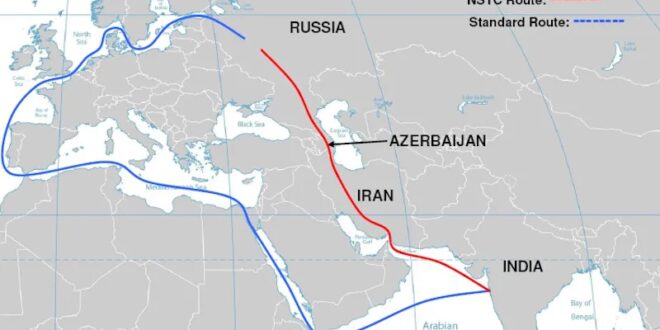In the Socratic dialogue ‘Republic’, Plato famously wrote: “Our need will be the real creator” which over the ages has developed into a well-known English proverb; ‘Necessity is the mother of invention’ meaning that the primary driving force for most new inventions is a Need.
Global oil politics have been relatively unstable ever since the end of World War II. This is because control over the oil market is crucial in positioning the world powers on the stage of the international political Economy. In simple words “He who owns the Oil, owns All”.
At present, in terms of crude oil output, the current top three oil-producing countries in the world are the United States, followed by Saudi Arabia and Russia.
Turkmenistan-Afghanistan-Pakistan-India (TAPI) gas pipeline project has been facing an uncertain future. However, the new Taliban regime in Afghanistan has shown interest in buying gas and oil from Russia and also continuing work on the TAPI gas pipeline project. Jamal Nasir Garwal, the Taliban-appointed charge d’affaires in Moscow, has reaffirmed Afghanistan’s ambition of developing the energy partnership with Russia. The Afghan diplomat also mentioned that the top leadership in Kabul remains quite keen to continue the work on the TAPI project, which has already seen more lows than highs since the first TAPI summit was held in Ashgabat in December 2010.
The TAPI gas pipeline project is nearly 1814 km long. 214 km of which falls in Turkmenistan, 774 km through Afghanistan, and 826 km in the territory of Pakistan before reaching Fazilka (Punjab) in India. The TAPI gas pipeline project would connect Turkmenistan, one of the largest energy suppliers in the world, with the South Asian countries.
At present, the progress made in constructing the Turkmen section of TAPI is tardy. Despite its officials claiming the progress, Turkmenistan’s strictly controlled media has shown no photographic evidence of TAPI’s construction. No or very little progress has been made since the initiation of works in December 2015.Whereas the construction of the Turkmenistan–China gas pipeline was completed in 2009 with extensive coverage.
Overall, the skepticism regarding the TAPI project related to financial and security concerns still remains even though its relevance and prospective benefits for the parties involved are well established. Given that none of the countries involved has so far done any construction. Completion of TAPI which was scheduled for 2020, is likely to be postponed if not discontinued.
It is important to note that in the game of this rivalry of oil politics the US and China may come face to face for their strategic and overlapping objectives of New Silk Road and the ‘One Belt, One Road’ (OBOR) initiative of the Chinese economic and strategic agenda. Consequently, building a pipeline or infrastructure for the Central Asian States is a challenge for both the US and China. On one hand, there are high terrains and steep mountain passes and on the other hand, the militancy in the region, such as the Taliban insurgency, and the Baloch separatist movement in Pakistan, make the pipeline plan vulnerable.
India, Iran to activate new shorter corridor to Russia
To overcome TAPI, India-Iran has activated a shorter and sanctions-proof route between Russia and India through which the Central Asia countries will also benefit. Iran’s state-run shipping company has successfully completed the first transit of Russian goods to India using the International North-South Transportation Corridor (INSTC).Most countries touched by the INSTC route have never been active backers of unilateral sanctions announced periodically by the West.
India and Irandiscussed various elements of bilateral relations, including progress on the Chabahar Port. Chabahar will also provide sea access to landlocked Afghanistan and emerge as a commercial transit hub for the region, including Central Asia. India has requested for the Chabahar Port to be brought under the INSTC ambit. Touching on the importance of the INSTC, Russian President Putin recently said “Moscow would pay more attention to it as it could help make the Caspian basin the hub of energy and logistics”.
Last month, a test cargo of 41 tonnes of wooden laminate sheets left St Petersburg for the Russian port of Astrakhan and from there, it was shipped to Iran’s Anzali Caspian port. It was then taken by road across Iran to Bandar Abbas from where the cargo was shipped to Mumbai. The entire journey took 24 days and is likely to become quicker once the trans-Iranian railway is completed.
Traditionally, shipments from South Asia go via the Suez Canal to the ports of Rotterdam (The Netherlands), Antwerp (Belgium), Piraeus (Greece) and Valencia (Spain). All of these places are amenable to the West’s diktat on unilateral sanctions.
Sanctions-proof route 40% shorter
In June, test cargo was shipped from Russia to India via INSTC.
INSTC connects Mumbai, Bandar Abbas, Baku, Bandar Anzali, Astrakhan and Moscow.
This route is safe from sanctions against Russia, Iran
Dry runs show the route is 30% cheaper and 40% shorterAdvantages will also accrue to the countries en-route. The INSTC corridor is going to attract the interest of a growing number of countries. US with the recent hardening of its posture against Russia due to the ongoing Russia-Ukraine conflict and sanctions on Russia and Iran is likely to try and hinder the project. INSTC to succeed in the long term with physical connectivity between Europe and Asia, INSTC member countries, especially India will have to consider and involve a new set of partner countries. If the INSTC corridor is successful it will be a big economic changer for India, the CARs and South Asian countries given the advantages.
 Eurasia Press & News
Eurasia Press & News



